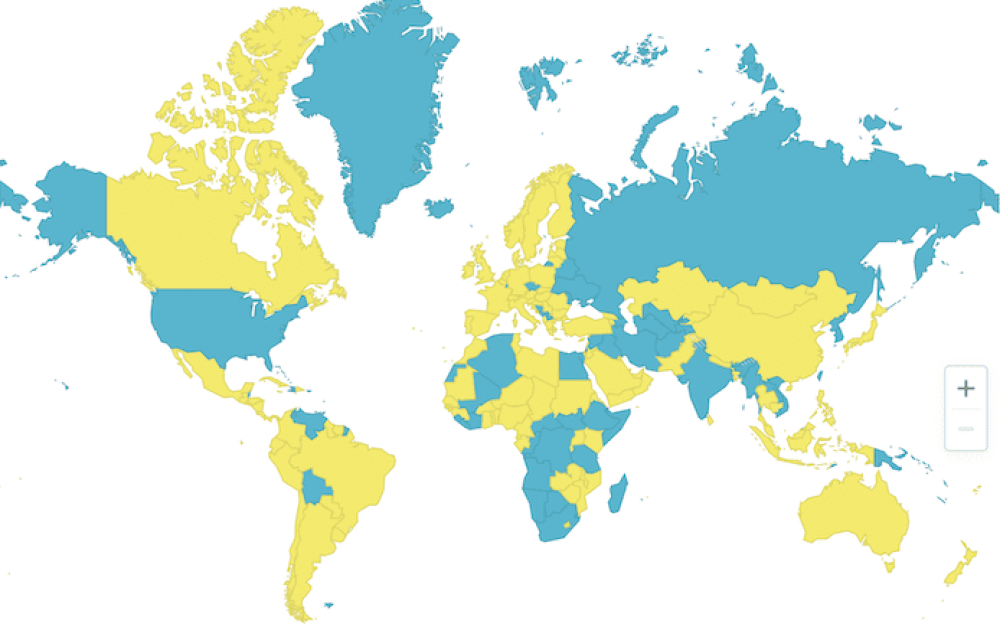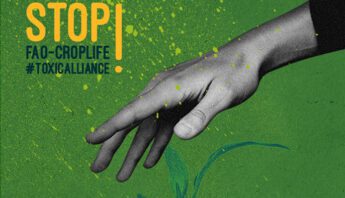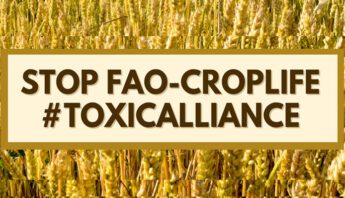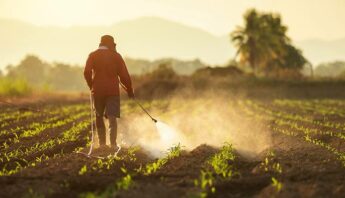In early June, the PAN global network released the latest update of its list of pesticide bans—and the news is encouraging.
In early June, the PAN global network released the latest update of its list of pesticide bans—and the news is encouraging. The 6th edition of the PAN International Consolidated List of Banned Pesticides documents 73 dangerous pesticides newly banned by national governments around the world.
The European Union and UK once again scored highest with 464* pesticides banned, followed by Turkey (212) and Saudi Arabia (201). Brazil is the stand out country in Latin America with 133 pesticides banned, and Indonesia and Cambodia scored highest in Asia, with 62 and 60 chemicals banned respectively. The United States has banned 21 pesticides, and records 81 “voluntary withdrawals” of pesticide registrations.
“The bans list shows that although some countries have made a good start, many countries have a long way to go,” said Keith Tyrell, PAN UK Director and the current Chair of PAN International. “We need political will to implement a clear phaseout strategy, with the goal to ban all Highly Hazardous Pesticides in agriculture by 2030.”
Global HHPs phaseout urgently needed
Highly Hazardous Pesticides (HHPs) are pesticides that are particularly harmful to human health and the environment. PAN International regularly updates a global list of HHPs; the most recent list—released in March 2021—includes 338 dangerous pesticides that are harming workers, communities and the environment in countries around the world.
Back in 2006, the United Nations Food and Agriculture Organization (UN FAO) recommended moving toward a global ban of HHPs. FAO worked with the UN Environment Programme (UNEP) and World Health Organization (WHO) to develop a Global Action Plan on HHPs.
Unfortunately, there has been little progress toward implementing a global HHPs ban and phasing in healthier alternatives.
“Toxic Alliance” with industry undermines progress
Efforts to phase out HHPs have been slowed by growing corporate influence in the UN, as exemplified by the partnership between FAO and CropLife International, the global pesticide industry association.
“So long as FAO pursues partnerships with the world’s largest pesticide companies, the organization will fail utterly to deliver the kind of visionary, responsible leadership the world needs,” says Marcia Ishii, Senior Scientist and Regional Coordinator for PAN North America. “FAO must take decisive action to phase out HHPs globally, and support a transition to healthy, climate-resilient food and farming systems.”
PAN International recently submitted a letter to Member States of the FAO on behalf of 430 civil society and Indigenous peoples organizations from 69 countries, urging the Council to direct FAO’s Director-General to immediately break off the agency’s partnership with CropLife.
The letter builds on recent recommendations from the UN Special Rapporteur on the Right to Food, and was accompanied by a briefing from PAN and 10 other organizations addressing the problems with FAO’s partnership with CropLife. As Organizing Co-Director Simone Adler notes:
“We cannot allow FAO, the UN agency mandated to support farmers and agricultural systems, to align with the industry that causes egregious pesticide poisonings and environmental devastation across the globe.”
Our pressure is working. Following delivery of the letter, the Stop the #ToxicAlliance coalition was finally offered a meeting with the Deputy Director-General and high-level FAO staff, where PAN International and our partner organizations voiced strong opposition to FAO collaborating with CropLife.
PAN issued a statement in early August reporting on the meeting and underscoring FAO’s continued lack of accountability for their engagement with the pesticide industry; you can find details here.
*The figure 464 for the EU and the UK includes 195 banned plus 269 proactively ‘not approved’ pesticides.







